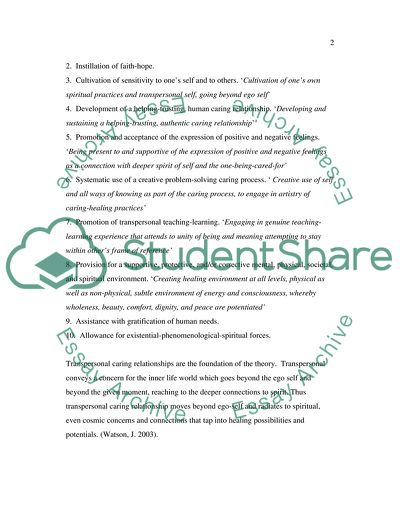Cite this document
(Jean Watsons Theory of Human Caring Term Paper Example | Topics and Well Written Essays - 2458 words, n.d.)
Jean Watsons Theory of Human Caring Term Paper Example | Topics and Well Written Essays - 2458 words. Retrieved from https://studentshare.org/nursing/1712163-watsons-theory-of-human-caring
Jean Watsons Theory of Human Caring Term Paper Example | Topics and Well Written Essays - 2458 words. Retrieved from https://studentshare.org/nursing/1712163-watsons-theory-of-human-caring
(Jean Watsons Theory of Human Caring Term Paper Example | Topics and Well Written Essays - 2458 Words)
Jean Watsons Theory of Human Caring Term Paper Example | Topics and Well Written Essays - 2458 Words. https://studentshare.org/nursing/1712163-watsons-theory-of-human-caring.
Jean Watsons Theory of Human Caring Term Paper Example | Topics and Well Written Essays - 2458 Words. https://studentshare.org/nursing/1712163-watsons-theory-of-human-caring.
“Jean Watsons Theory of Human Caring Term Paper Example | Topics and Well Written Essays - 2458 Words”, n.d. https://studentshare.org/nursing/1712163-watsons-theory-of-human-caring.


